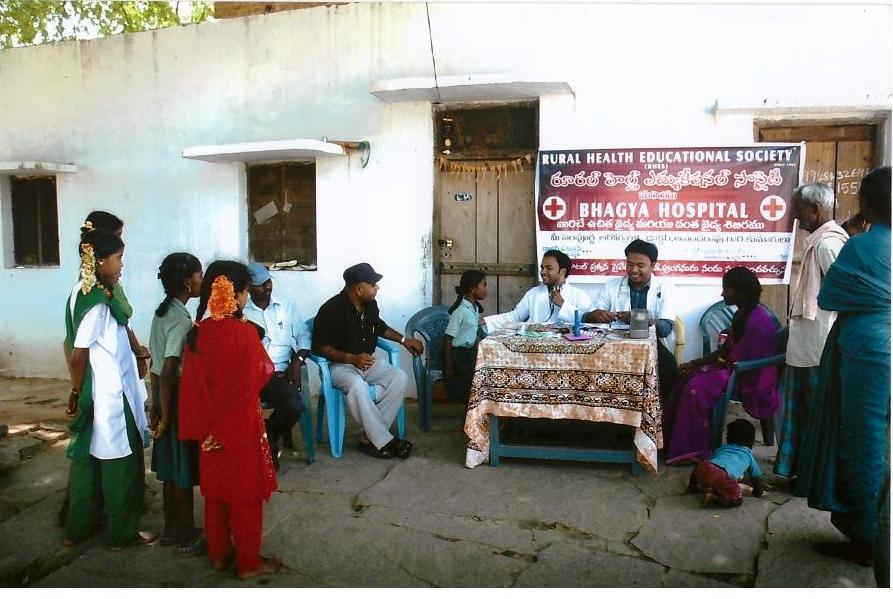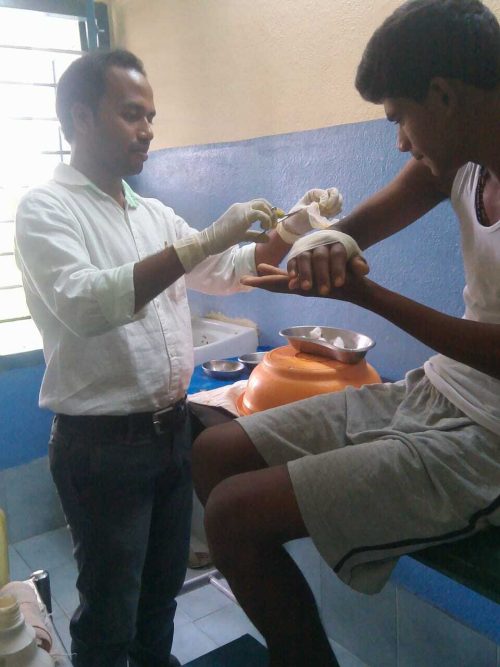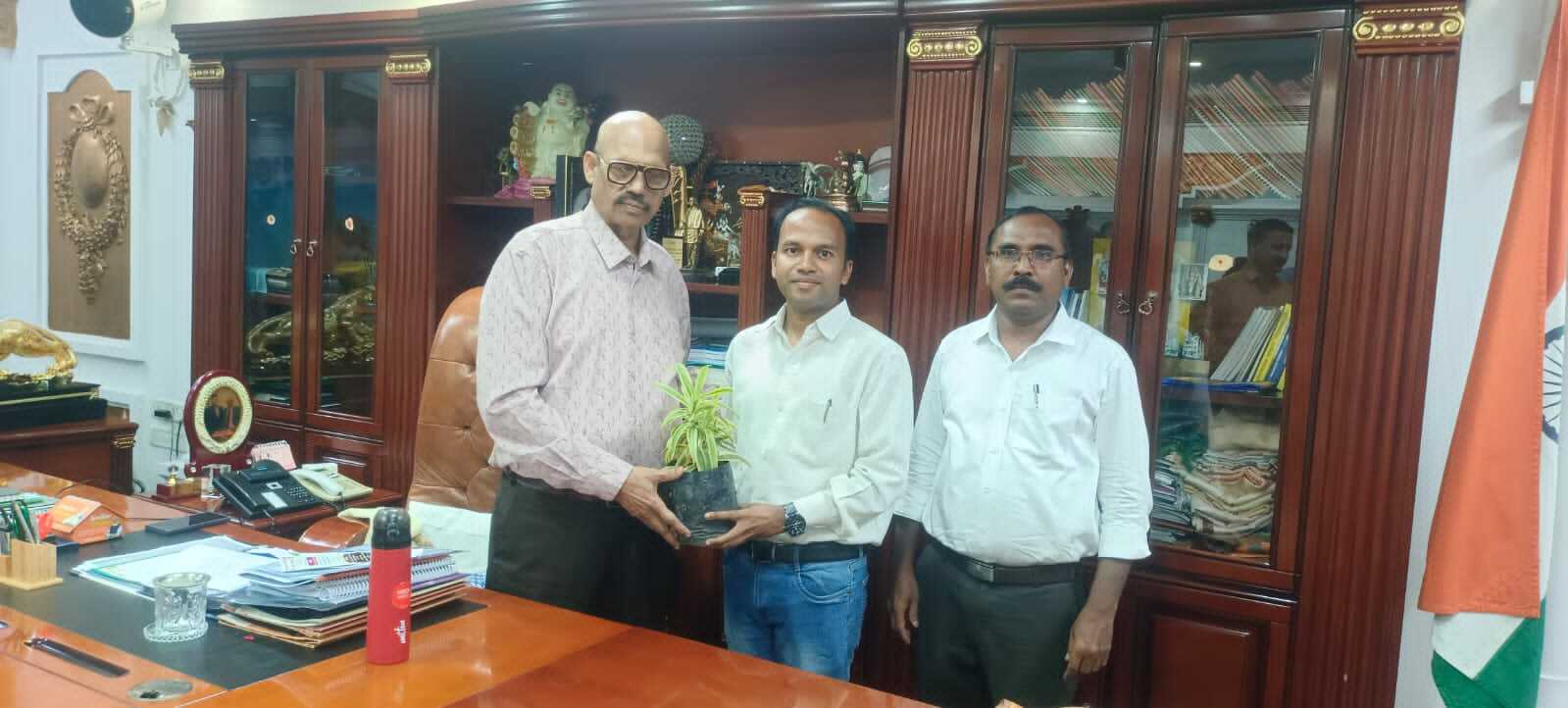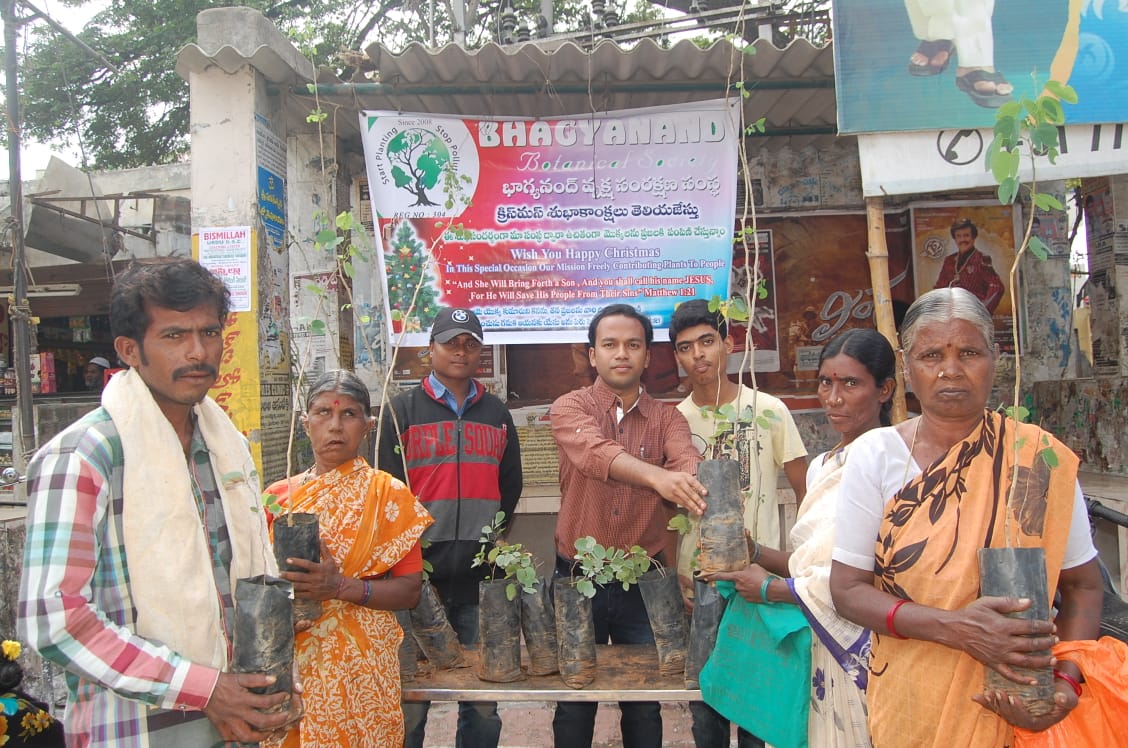What does it take to truly change lives in some of India’s most neglected areas? For Dr Naperla Praveen, the answer lies in a persistent commitment to healthcare, environmental conservation, and a deep-seated legacy of service that began long before he donned his medical coat.
At 35, this doctor from Punganur, a small town in Chittoor district, Andhra Pradesh, is not only defined by his medical expertise but by a relentless dedication to improving the lives of the underserved. His journey challenges us to rethink what it truly means to serve society.
Growing up, Dr Praveen was deeply influenced by the tireless dedication of his father, Dr Anand Rao, a retired government doctor and gynaecologist, who had always believed that healthcare should be a right, not a privilege. In 1994, Dr Anand Rao and his wife, Smt Sowbhagyavathi Garu founded the Rural Health Educational Society, an NGO with a mission to provide free healthcare services to the rural communities.

“I was just a boy when I saw my father go to remote villages, where no one else would go, to treat patients for free,” Dr Praveen tells The Better India. “His commitment was beyond words. He never expected anything in return, and that made a deep impact on me.” His mother, Smt Sowbhagyavathi Garu, also played a pivotal role in nurturing this vision, encouraging him to expand their family’s efforts for social welfare.
Inspired by his father’s work, Dr Praveen chose the medical profession, but not with the intent of settling into a conventional practice. Instead, he was drawn to the idea of blending medicine with social service. As he completed his MBBS in China, he knew that his ultimate mission lay in rural India, in the very communities his parents had served for decades.
Nurturing nature, nurturing health
After completing his studies, Dr Praveen returned to India, where his connection with the NGO grew deeper. Even as a young medical student, he had volunteered in health camps organised by the Rural Health Educational Society, and he quickly became an integral part of the NGO.
Dr Praveen’s involvement with the NGO wasn’t just about providing treatment, he was determined to address the root causes of health problems that plagued rural communities. Anaemia, for example, became one of his primary concerns, especially after a personal tragedy. “While I was in college, a friend’s mother passed away due to anaemia,” he shares, his voice trembling a little. “That moment changed my life. I knew I had to do something to prevent this silent killer.”

He led several campaigns to raise awareness about anaemia, especially among pregnant women and young girls. Through Rural Health Educational Society, he started distributing iron tablets, conducting blood tests, and teaching about hygiene, gradually reducing maternal deaths and improving the health of thousands in the region.
While his work in rural healthcare was flourishing, another calling beckoned Dr Praveen, one that came from his mother, Smt Sowbhagyavathi Garu. Having always believed that health is intrinsically linked to the environment, she encouraged her son to expand his vision to urban areas, where pollution and environmental degradation were becoming pressing issues.
In 2008, driven by his mother’s passion for environmental conservation, Dr Praveen established the Bhagyanand Botanical Society in the urban landscape. The organisation focuses on environmental awareness, sustainable practices, and the conservation of nature. “My mother always taught me that good health starts with clean air, trees, and healthy surroundings. We cannot separate health from the environment,” he recalls.
Through Bhagyanand Botanical Society, Dr Praveen has championed several initiatives. His team has planted over 50,000 saplings, organised pollution awareness campaigns, and advocated for eco-friendly practices like the use of electric vehicles. The NGO also runs community programmes that teach urban dwellers about sustainability, clean energy, and green spaces.
Tackling roadblocks and achieving success
Dr Praveen’s work has taken him across the rural and tribal areas of Chittoor, Kurnool, and Nellore, where healthcare infrastructure is either rudimentary or non-existent. The lack of resources has never deterred him, instead, it has spurred him to innovate. “We have to be resourceful,” he says. “In these villages, we may not have fancy equipment, but we have our hands, our knowledge, and the willingness to help.”
In rural communities, Dr Praveen treats a wide range of ailments, from simple infections to complex chronic diseases. He also leads public health initiatives to improve overall health outcomes. His work in anaemia prevention, in particular, has saved countless lives. One patient, Sarojama (40), from Battamdoddi village, recalls, “I was struggling with my health for over a year. No one knew what was wrong. Dr Praveen visited our village once and diagnosed me with anaemia. I followed his treatment, and within a few weeks, I began to recover. My haemoglobin level was initially around eight, but thanks to his care, it has now risen to 10.5.”

While the 35-year-old doctor has touched many lives, the road hasn’t been without its obstacles. The most significant challenge, especially in tribal areas, has been the lack of infrastructure, language barriers, and cultural differences. “Sometimes, it’s difficult to communicate. Other times, people don’t trust us because they’re used to traditional practices. But we break through these barriers with patience, respect, and by showing results,” he shares.
Initially, the greatest challenge in the tribal villages was reaching the people. “Gradually, I started building connections with local leaders, village presidents, and officials. I convinced them to support our awareness campaigns in their communities. We brought together teenage girls and pregnant women to educate them about anaemia, using photos and videos to help them better understand the issue. We made the campaigns as engaging and relatable as possible,” shares the doctor.
“We also focused on hygiene. Through videos made by our NGO, we taught people the importance of washing hands and staying clean. It was all about making health education accessible and interesting, and we successfully implemented these programmes,” Dr Praveen explains.
Recognition and future goals
Dr Praveen’s bond with his patients is personal and profound. One of his most memorable experiences came when he helped Vijay, a young man from Laddigam village, whose father had been suffering from tuberculosis for over a year. “We had no idea how to treat him,” Vijay explains. “Dr Praveen came to our village, diagnosed him, and started the treatment. Now, my father is healthy and living a normal life.”
For the doctor, these success stories are the fuel that drives him. “The work we do is about more than just treating diseases. It’s about creating an environment where people can thrive. A healthy body needs a healthy environment.”
Dr Praveen’s commitment to healthcare and social welfare has not gone unnoticed. In 2016, he was awarded the Ambedkar National Award in New Delhi for his contributions to rural health. More recently, in 2024, he received an appreciation letter from Prime Minister Narendra Modi for his work in health and environmental conservation.
“We need to focus on early detection of diseases like cervical and breast cancer. Women in rural areas often don’t have access to such screenings, and that’s where I want to make a difference,” the doctor adds.
Vision for change
Beyond his medical work and NGO, Dr Praveen is also an accomplished writer. His books, particularly Maha Swathathryam, have made an impact in the literary world, with many of his works focusing on environmental issues. “I think that writing allows me to reach a wider audience and inspire change on a larger scale,” he says.
“I believe in the power of small steps,” he says, reflecting on his journey. “Whether it’s treating a patient, planting a tree, or writing a book, I know that these small actions, together, can create a better world.” Despite operating on a shoestring budget, largely funded by personal savings, Dr Praveen’s vision for Rural Health Educational Society and Bhagyanand Botanical Society continues to grow. The challenge of securing external funding has been one of the ongoing struggles, but his constant belief in the cause keeps him going.

As Dr Praveen looks ahead, the road may be challenging, but his resolve is stronger than ever. And for those whose lives he touches, his legacy of service will continue to inspire for generations to come.
Support Dr Naperla Praveen’s mission to improve rural health by donating to the Rural Health Educational Society:
Name: Rural Health Educational Society
Bank: State Bank of India
Account No: 40078561627
Branch: PUNGANURU
IFSC: SBIN0040003
Edited by Arunava Banerjee; All images courtesy Dr Naperla Praveen
##QA-TP1##
No comments:
Post a Comment